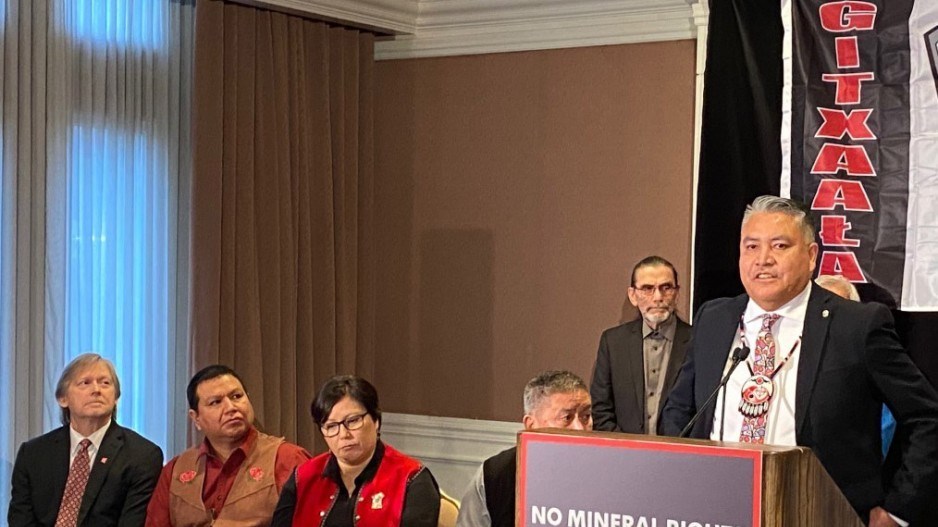BC Supreme Court found Declaration on the Rights of Indigenous Peoples Act is more of a ‘interpretive aid’ than a law

NationTalk: Vancouver is Awesome – The Gitxaala First Nation is appealing a recent BC Supreme Court decision that found, among other things, that the United Nations Declaration on the Rights of Indigenous Peoples (UNDRIP) has no force in law in B.C.
The Gitxaala also want the Court of Appeal to do what the BC Supreme Court refused to do – quash several mineral claims in their traditional territories.
The Gitxaala and the Ehattesahet First Nations had gone to court over B.C.’s Mineral Tenure Act. Their main concern was that mineral claims can be granted without the consent or even knowledge of First Nations. They had asked the court for:
- an injunction halting any further mineral claims being granted in their territories without their consent;
- the quashing of several claims already issued; and
- a declaration the Mineral Tenure Act is inconsistent with UNDRIP and B.C.’s own Declaration on the Rights of Indigenous Peoples Act (DRIPA).
BC Supreme Court Justice Alan Ross did agree that the province has a duty to consult First Nations even at the earliest stages of mineral exploration – the filing of a claim – but refused to grant the injunctions sought or quash claims already issued.
He gave the provincial government 18 months to resolve conflicts between the Mineral Tenure Act, Canadian laws governing the duty to consult, and DRIPA.
In his ruling, Ross found that DRIPA is more of an “interpretive aid” than a law. He said DRIPA does not implement UNDRIP into domestic law.
The Gitxaala in their appeal want the Appeal Court to rule that it does. Specifically, they seek a declaration that DRIPA applies to all laws in B.C.
“The provincial government fought us tooth and claw in court to argue that DRIPA – the law B.C. itself enacted to uphold UNDRIP – is not legally enforceable,” Gitxaała Chief Councillor Linda Innes said in a press release.
“The court’s decision is a result of B.C.’s efforts to score political points on DRIPA while avoiding any legal accountability – but DRIPA must be more than an empty political promise.”